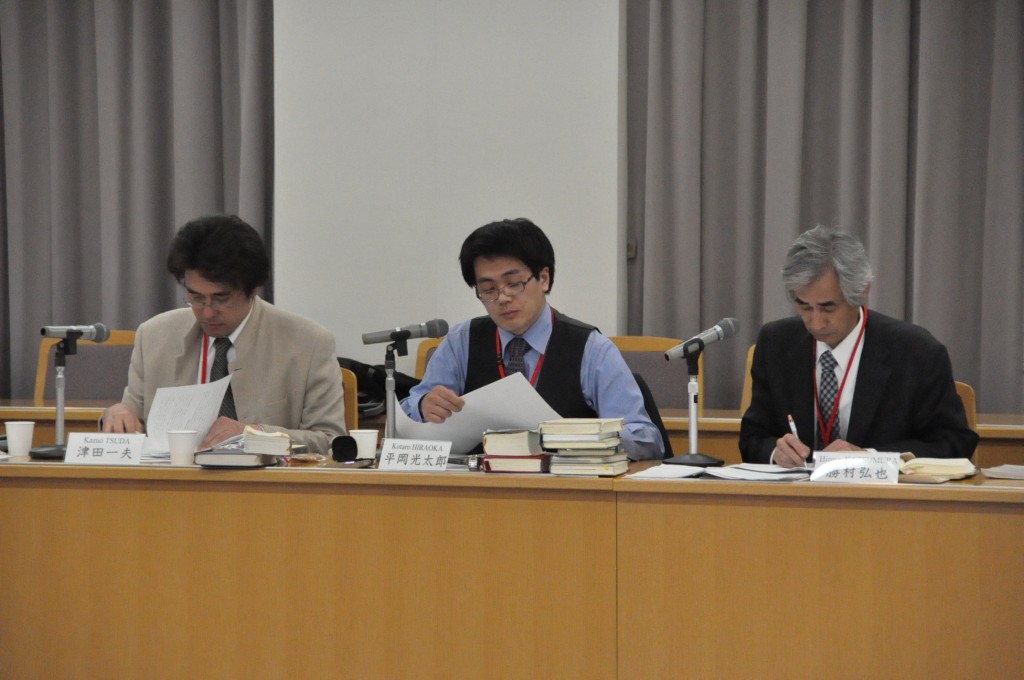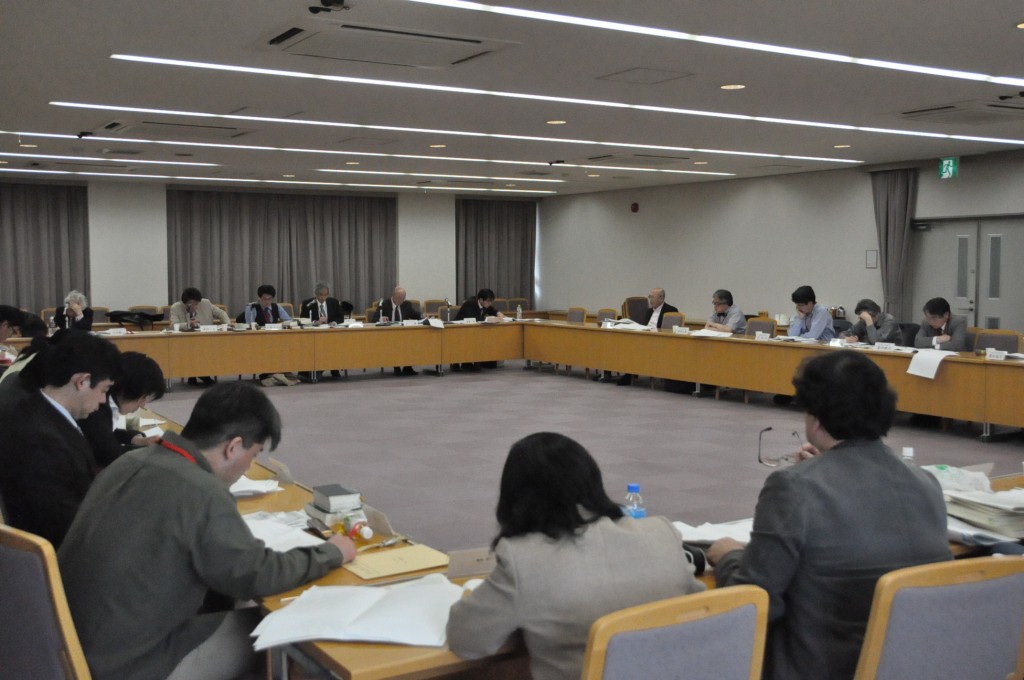Center for Interdisciplinary Study of Monotheistic Religions(CISMOR)Doshisha University
> Past Research Activities > From the Perspective of the Studies of the Bible and LawPast Research Activities
The Second Session of the Symposium by Young Scholars
From the Perspective of the Studies of the Bible and Law
| Date: |
2010/05/15 14:45 − 16:15 |
|---|---|
| Place: | Confarence Room, Neisei-kan 5F, Imadegawa Campus, Doshisha University |
| Speaker: |
|
| Commentator: |
|
| Summary: | |
|
- Buber in Biblical Study Buber attempted to interpret the meanings of biblical stories by focusing on the style of biblical narratives—he paid attention to the Hebrew words that appear repeatedly in the text of the Bible and the roots of such words, which Buber referred to as Leitwort (guiding words). Such an approach by Buber is often introduced as a typical example of the “literary exegesis” of the Bible. Since the 19th century (especially since Wellhausen), on the other hand, mainstream scholars of modern biblical study have taken an interest in the historical process of the development of literature. For example, H. Gunkel and his followers, while paying attention to the style and type of biblical narratives as Buber did, achieved substantial results also in historical study by addressing social issues from the viewpoint of “Sitze im Leben” (seat in life). Compared with these scholars, it seems that Buber made only limited achievements. Presumably, this is because of the basic approach of Buber to interpret the Bible as a united whole from a synchronic perspective, which is considered to be distinguishable from the methodology of diachronic interpretation. In The Kingdom of God, which deals with the Book of Judges, however, it is evident that Buber offers bold insights into historical issues as well, aside from attempting the synchronic interpretation of the Bible. During this study meeting, the presenter insisted that this does not mean that Buber departed entirely from his own methodology. Buber holds that the Leitwort style has, at its back, the memory of the historical community that ingenerated the style. Additionally, in The Kingdom of God, Buber says it was the memory of theocracy. Presumably, Buber’s concept of memory was built upon his extensive knowledge in various academic fields not limited to biblical study. To be specific, it would be helpful to examine the concept of memory advocated by a French linguistic psychologist, M.ジュセ (1925), as well as a sociologist, M. Halbwachs (1925) who was active in France around the same time. Attention should be paid also to the association of Buber’s thought with that of J. Grimm concerning oral tradition, as well as to the similarities and differences between Sitze im Leben and memory in terms of “form history.” By taking into consideration the influences of these scholars, and by examining the text of the Bible itself, we should renew our understanding of the methodological significance of Buber’s hermeneutics, as well as its validness and limitations, from the viewpoint of “memory.” Kazuo Tsuda, Graduate School of Theology, Doshisha University - Characteristics of Buber’s Concept of Theocracy (Theokratie) In the modern process of secularization, many Jewish people in Western society came to accept the Hebrew Bible (Old Testament) as a classical piece of literature, not as a holy scripture. Especially in Israel, the Hebrew Bible is treated as the nation’s legitimate classical piece of work. Recently, a group of parliament members studied the Hebrew Bible in order to learn from the leadership represented in it. When considering the religious-political issue in the context of modern Jewish thought, it is not simply for the interest of hermeneutic study that one explores exactly what political model is presented in the Hebrew Bible; instead, the political view of the Bible can have influence on the general understanding of political thought and can eventually affect the security problem seen in the Middle East. In Königtum Gottes (The Kingdom of God) (1932), Martin Buber (1878–1965), through his biblical exegesis, provides important insights that help us explore the religious-political issue by presenting the concept of theocracy. Buber also advocated the idea of “bi-nationalism,” which will make possible peaceful coexistence between Arabs and Palestinians. In the second and third editions of The Kingdom of God, Buber responded to criticism and comments by leading biblical scholars regarding the concept of theocracy. In modern biblical study, Buber’s contention is almost ignored, while in the study of Jewish thought, Buber’s concept of theocracy continues to draw attention. This presentation aimed to give an outline of Buber’s concept of theocracy and to shed light on how it is accepted in the context of modern Jewish thought. Kotaro Hiraoka, Graduate School of Theology, Doshisha University |
|

